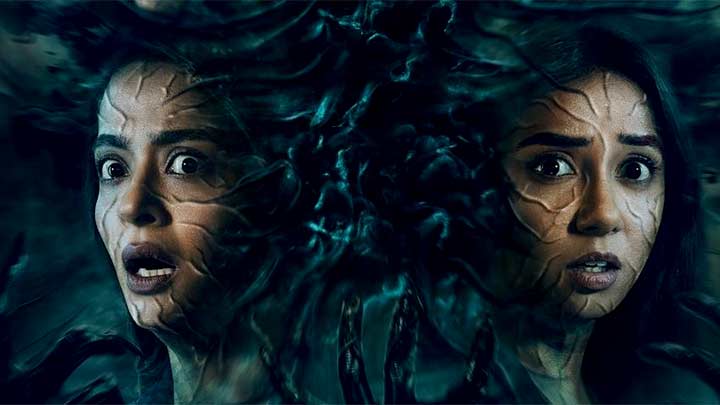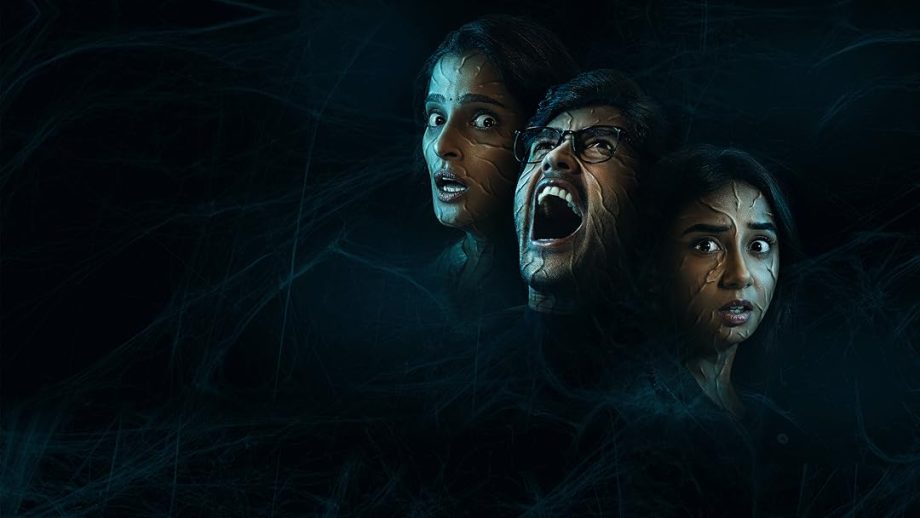What is darkness, if not a mirror to our most unspoken truths? Not the absence of light, but the presence of everything we refuse to confront—our grief, our guilt, our shadow selves. Andhera, directed by Raaghav Dar and produced by Excel Entertainment, is a searing and cerebral descent into the psychological underworld of modern Mumbai that dares to ask: what happens when that darkness takes form? When it no longer stays within but begins to hunt from without?
Written by Gaurav Desai, Raaghav Dar, Chintan Sarda and Karan Anshuman, and directed with haunting precision by Raaghav Dar, Andhera is far more than a supernatural thriller. It is a meditation on existential dread, a lyrical exploration of consciousness under siege. Over eight gripping episodes, the series unspools like a fever dream where time blurs and every shadow threatens to swallow what little clarity remains.

At the ‘ruh’ (aatma) of this spectral maelstrom are two tormented figures: a resolute, razor-sharp cop (Priya Bapat, in a performance that simmers with suppressed rage and moral clarity) and a traumatised medical student (Karanvir Malhotra, spectacularly magnetic), both ensnared in a city slowly being consumed by a malignant force. Mumbai, usually cast as a city of relentless vitality, is reimagined here as a decaying organism, its glossy skyline a cruel contrast to the darkness seeping beneath.
But Andhera is not pleased with frugal frights or surface-level thrills. Its actual affliction lies in the metaphysical. The series wrestles with the nature of fear as an internal condition, turning eyesore into ideology. One indelible scene features Bani’s mother stating, “You cannot run away from the darkness.” You feel that ontological truth. Darkness, in Andhera, is not the antagonist. It is the ordeal. The inquiry is not whether we can evade it, but whether we can endure it without letting it deplete us.

Symbolism runs through the narrative like blood through veins. Fire becomes a preeminent motif, both purifying and perilous. To feed the fire is to remain conscious, to defy spiritual cessation. Water, in turn, depicts surrender, inertia, the decoy of oblivion. These introductory forces clash in a final act that is more ritual than resolution, more catharsis than finale.
The performances are uniformly compelling. Surveen Chawla and Prajakta Koli (Rumi) inhabit their roles with solemn authenticity, but it is Priya Bapat who provides the spine of the series. Her portrayal of a woman refusing to flinch in the face of cosmic horror is nothing short of revelatory.
Andhera is soliciting, upsetting, and unrelentingly contemplative. But therein lies its illumination. It reminds us that light is not the absence of darkness, but the will to confront it. And once you have darted into Andhera, it will continue to look back.
A rare, philosophical knockout, Andhera doesn’t just mortify. It fetches revival.
Andhera is streaming on Prime Video.
IWMBuzz rates it 4/5 stars.

